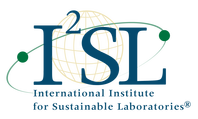What is BETR Grants?
|
Bringing Efficiency To Research (BETR) Grants (pronounced "better grants") is an initiative of the International Institute for Sustainable Laboratories (I2SL) University Alliance Group (UAG). The goal of BETR Grants is to connect efficiency expectations and sustainability to the funding of research. The UAG believes that those connections will lead to widespread progress to advance sustainable practices in research, the efficient use of resources, and optimized spending of sponsor funding by effectively reducing the direct and overhead costs of research. Considering the large environmental footprint of scientific research, the urgency of climate change, and the hyper-competitive environment that researchers are facing for US funding, systematic changes towards efficient laboratories operations and practices will ultimately minimize the environmental footprint of research, help to relieve the pressure of the current competitive funding environment, and allow more science to be funded. The focus of BETR Grants is currently on US funding of research where, in most cases, these connections are lacking. However ideas within this website may be useful across the world. Join us in our efforts to bring efficiency to the funding process while helping your proposal stand out by voluntarily incorporating actions for efficiency and sustainability into your grant proposals now. |
We invite scientists and sustainability advocates around the world to unite in pushing for change by joining the Million Advocates for Sustainable Science letter campaign: |
Efficiency in the News United Kingdom Research and Innovation (UKRI) is already taking action to address the need for efficiency and environmental sustainability in the UK granting and investment processes. "By 2025 we will have embedded environmental sustainability across all our investments by acting on our environmental values and changing our funding and decision-making processes and criteria to raise the standard for environmental sustainability across our sector." -UKRI, An organization uniting the funding bodies in the UK Check out the UKRI Environmental Sustainability Strategy released in 2020 |
Institutions can help, too!It is not just granting bodies that provide funding for research, institutions such as universities also make institutional investments in research through start-up packages for newly hired faculty, construction/renovation of research spaces, and contributions to purchases and support of instrumentation. As a result, research institutions can also do their part to connect efficiency expectations and sustainability to those financial investments where possible. To learn about strategies that institutions can implement, click on the button below. |
Opportunities for Improved Efficiency in Research
As a first step in this systematic change, the UAG is calling for voluntary inclusion of a description of efficient practices and/or facilities into grant proposals. Explore the different ways in which you can implement efficiency improvements into your research processes and then highlight them in your proposals.
Points to consider:
- Requests to US Congress and others for funding could be strengthened by commitments to connect efficiency expectations with research dollars. This would maximize the positive impacts of investments and minimize the environmental footprint of research.
- Instead of spending start-up dollars to purchase duplicative equipment resources already present at a research institution, start-up packages could be structured to meet the needs of new faculty by providing funding to use existing shared equipment facilities (cores).
- Furthermore, avoiding duplicative equipment also reduces the need for expensive laboratory infrastructure and space (i.e.; 1000 sq.ft. of lab space costs approximately US$1 million in new construction at the University of Colorado Boulder).
- In Facilities and Administrative (F&A) Rate applications, research institutions could voluntarily include efforts for efficiency (particularly with space use) to demonstrate what they are doing to keep overhead costs down.

